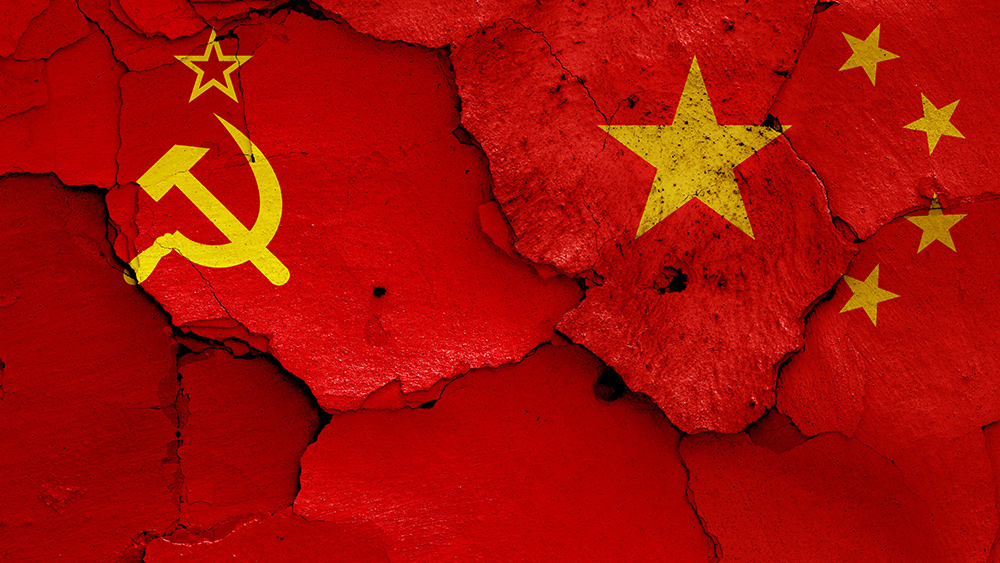Dr. Richard Ebright says WHO members were “participants” in covid “disinformation” campaign
05/18/2021 / By Ethan Huff

Twenty-six world scientists have signed on to an open letter calling for a full and unrestricted international forensic investigation into the origins of the Wuhan coronavirus (Covid-19).
Released on March 4 by The Wall Street Journal and Le Monde, the letter contains a signature from Dr. Richard H. Ebright, a high-level scientist who says the World Health Organization (WHO) is complicit in a massive Chinese Virus coverup and “disinformation” campaign.
A Board of Governors professor of chemistry and chemical biology at Rutgers University, as well as laboratory director at the school’s Waksman Institute of Microbiology, Ebright has more than 160 publications and more than 40 issued and pending patents. Ebright is also a member of the American Academy of Arts and Sciences who has worked on two National Institutes of Health (NIH) research grants.
Ebright has many more credentials under his belt that substantiate his allegation that the WHO is lying about the true origins of the Wuhan Flu. The United Nations entity also conducted a phony investigation that did not even include basic standards for credibility, he says.
“A credible investigation would have had Terms of Reference that: 1) Acknowledged the possibility of laboratory origin, 2) Ensured access of investigators to records, samples, personnel, and facilities at the Wuhan laboratories that handle bat SARS-related coronaviruses, 3) Enabled collection of evidence, not mere meet-and-greet photo-ops, 4) Authorized an investigation of months, not mere days. And 5) A credible investigation also would have had conflict-of-interest-free investigators, not persons who were subjects of the research and/or closely associated with subjects of the investigation,” Ebright explained during a recent interview.

Without these key elements, the WHO’s investigation was nothing more than a “charade,” Ebright added, explaining that some of the investigation team’s members were openly enthusiastic about participating in a disinformation campaign meant to shield the Chinese Communist Party (CCP) from scrutiny.
Another thing about the WHO investigation that few are aware of is that its “Terms of Reference” did not even acknowledge the possibility that the Chinese Virus could have come from a laboratory – most likely the Wuhan Institute of Virology (WIV).
A real investigation by the WHO would have involved actually investigating communist China
One of the WHO’s investigatory team members, EcoHealth Alliance president Peter Daszak, also has conflicts of interest that should have disqualified him from participation, Ebright noted.
“Daszak was the contractor who funded the laboratory at WIV that potentially was the source of the virus (with subcontracts from $200 million from the US Department of State and $7 million from the US National Institutes of Health), and he was a collaborator and co-author on research projects at the laboratory,” he explained.
Had Ebright been in charge of putting together the forensic team, he would have required that they gain access to records, samples, personnel and facilities at not just WIV but also the Wuhan Centers for Disease Control (CDC) and the Wuhan Institute of Biological Products.
“It would entail inspection of electronic and paper records, inspection of freezer and refrigerator samples, environmental sampling of facilities, and confidential interviews with personnel–including previous and current construction, maintenance, janitorial, disposal, security, animal-facility, laboratory, and administrative personnel,” Ebright explained.
In Ebright’s view, the Wuhan coronavirus (Covid-19) did, in fact, come from WIV. Dr. Steven Quay, another signer of the open letter, agrees. His lab determined that there is a 99.8 percent probability – or roughly the survival rate of the virus itself – that the Chinese Virus originated at WIV.
“At this point in time, there is no secure basis to assign relative probabilities to the natural-accident hypothesis and the laboratory-accident hypothesis,” Ebright says.
“At this point in time, all scientific data related to the genome sequence of SARS-CoV-2 and the epidemiology of COVID-19 are equally consistent with a natural-accident origin or a laboratory-accident origin.”
So while the WHO is demanding more cash to develop Chinese Virus injections, Ebright and others are trying to get the world’s attention that the WHO is not to be trusted since it could not even conduct a legitimate investigation into the true origin of the virus.
Though not a virologist, Ebright’s microbiology and molecular biology background fully qualifies him to comment on such matters. He says virology is merely a subset, rather than a superset, of both fields.
“It is crucial that any team reviewing the issues include not only research scientists, but also biosafety, biosecurity, and science policy specialists,” he says.
Based on the genome sequence of the Wuhan Flu, it would appear as though its progenitor came from either a horseshoe-bat coronavirus RaTG13 or some other closely related bat coronavirus. And it just so happens that RaTG13 was collected by WIV back in 2013 from a horseshoe-bat colony in a Yunnan province mine where miners died from a SARS-like pneumonia in 2012.
The virus was partially sequenced by WIV in the years between 2013 and 2016 before being fully sequenced between 2018 and 2019. In 2020, WIV published the sequence.
“Bat coronaviruses are present in nature in multiple parts of China,” Ebright says.
“The first human infection also could have occurred as a laboratory accident, with a virus accidentally infecting a field collection staffer, a field survey staffer, or a laboratory staffer, followed by transmission from the staffer to the public. There also is clear precedent for this.”
At the end of the day, the WHO is lying on behalf of the CCP. What else is the WHO lying about that goes against American interests?
More of the latest news on Wuhan coronavirus (Covid-19) deception can be found at Pandemic.news.
Sources for this article include:
Tagged Under: agenda, bias, coronavirus, COVID, disinformation, investigation, open letter, origin, propaganda, research, Richard Ebright, WHO, Wuhan Institute of Virology




















